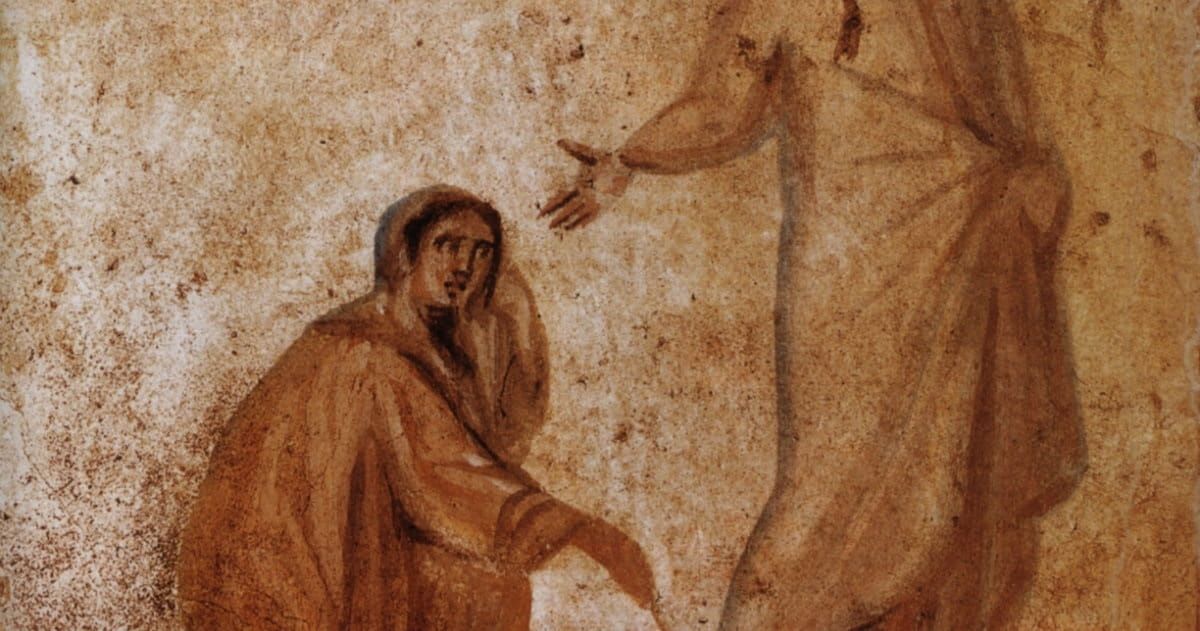Message of Abbot Paul - Monday 5th July
Message from Fr Paul for Monday, 5th July 2021
Although Mark’s is by far the shortest of the four Gospels, as I’ve often mentioned, his short narrative often gives far more detail than the others, especially Matthew and Luke to which it is related. Today’s Gospel passage from Matthew, (Mt 9: 18-26), is a case in point. We read of a healing and of a raising from the dead, two incidents that show the authority of Jesus over death. He heals a woman who has been subject to bleeding for twelve years and then raises a little girl from the dead. In both cases, he is restoring them to life. While it is true that these are acts of mercy towards a sick woman and a grieving father, nevertheless miracles remain pointers to a reality far greater and, possibly, beyond our understanding, the gift of salvation and eternal life.
As in Mark, we find a miracle within a miracle: Jesus is approached and his garment touched by the sick woman, while he is setting off for the house of the official to heal his sick daughter, who at this stage is unknown to be dead. Both miracles are the result of faith, that of a father, who believes his daughter’s life can be saved by Jesus simply laying his hands on her, and the faith of a woman, who believes that Jesus can heal her if she but touch the hem of his garment. Both show remarkable faith in the power of Jesus to heal and save. In fact, Jesus says to the woman healed of the haemorrhage, “Courage, my daughter, your faith has restored you to health.” What strikes us in Jesus’ words is that faith in Jesus is the healer, rather than it being Jesus who heals. We could interpret this as meaning that Jesus’ power of healing reacts to and reflects the degree and depth of our faith. In the case of the little girl, it will be her father’s faith which is the key that unlocks the authority of Jesus over death. “When Jesus reached the official’s house and saw the flute-players, with the crowd making a commotion he said, ‘Get out of here; the little girl is not dead, she is asleep.’ And they laughed at him. But when the people had been turned out he went inside and took the little girl by the hand; and she stood up. And the news spread all round the countryside.” When they arrive at the official’s house, the pandemonium of death is already in full swing. The crowds laugh at Jesus’ words, yet still obey him. It is by touch that he heals the little girl. There is no reaction either from the parents or from the crowd. All we are told is that, “the news spread all round the countryside.” It would appear that this was not the first time such an event had taken place, for what else would explain the faith of the officer and the woman.
What can we learn from this passage? Firstly, that the promises of Jesus are not to be laughed at. This reading should renew our faith in Christ and his authority to restore the sick to health and the dead to life. Secondly, faith does not contradict medical science, but seeks to work together with it and support doctors and nurses. Prayer and faith in God certainly play an important part in the healing process. Thirdly, hope is fundamental to our faith. Death, which eventually comes to us all, is the portal through which we pass to eternal life. Our hope is not for this world only, as St Paul writes, but for that eternal kingdom in which we shall see God face to face and he will be all in all. The raising of the little girl to life shows us that death is no obstacle to God’s plan of salvation.










